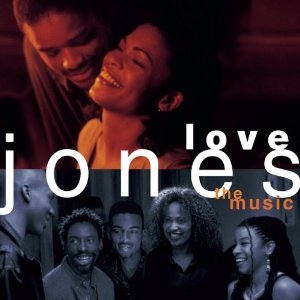Love Jones
In describing her experience with Black Cinema, Black female filmmaker Julie Dash (Daughters of the Dusk) said, “…some people assume that because they’ve never seen or heard of something then no one has…it doesn’t exist.” It seems to me that according to Hollywood, Black people don’t even like one another, which means there is certainly no room for love and romance between them. What is so brilliant about Theodore Witcher’s first and only film is the authenticity that he brings to the screen regarding the lives of urban young Black people; an authenticity almost never seen in Hollywood. According to the scholar Amiri Baraka, “Witcher apparently wants us to recognize these verbal exchanges and their accompanying bodily attitudes with a contemporary performance–oriented African American culture.”
Using black and white photographs of Chicago’s still very racially segregated South Side, Love Jones opens, immediately thrusting the viewer into the urban space of Black Chicago in the 1990’s. Darius Lovehall (Larenz Tate) meets Nina Mosley (Nia Long) in a neo-soul poetry café. Neither individual is too much focused on their love life; their careers seem to be at the forefront of their consciousness. But alas, we humans typically succumb to the desires of the flesh. Initially, their relationship is not really a “love thang”, though the sex is good; Nina and Darius realize their connection is a bit more than causal.
What I find most interesting about the film is that initially, Witcher allows his characters to step out of their traditional gendered roles. Nina approaches Darius outside of the poetry café on the night that they first meet. Despite the fact that he is with a group of his mostly male friends, she boldly checks him out, giving him the once over, typically reserved for the male gaze. Darius on the other hand, though masculine in his assertiveness, is also depicted as extremely sensitive. On their first date, he’s attentive and caring to Nina, even cooking her a cheese omelet the next morning. However, as their relationship continues, the couple reverts back to their traditional gender roles, which makes for the main conflict and tension in the film. Witcher has enough confidence in his material and in his audience to allow us to watch the relationship deteriorate, moving from the new and exciting to the mundane and emotionally unbearable.
The only major issue that I have with the film is that during a hiatus with Darius, Nina goes out with his homeboy Hollywood. Really?! Witcher loses me for a moment here. Nina reacts as if she does not realize Wood has a sexual interest in her and she’s simply being led to believe that they are just “chillin”. Witcher in this instance strips Nina of any redeeming qualities that I so related to, she’s suddenly pathetic and ridiculous seeking any male attention that comes her way. Nina is not even framed as if she were trying to get revenge on Darius, which would have made the most sense to me.
Otherwise, the film is near perfection, Lisa Nicole Carson (Ally McBeal), Isaiah Washington (Grey’s Anatomy) and Bill Bellamy (How To Be A Player) add brilliant humor and dialogue. Larenz Tate (Menace II Society) is at the peak of his career and Nia Long (Soul Food) is stunning and wonderful as always. The Chicago backdrop versus the typical New York or California one is also a refreshing and welcomed change. The steamy sex scene alone, with Maxwell crooning in the background, makes my lower regions tingle, and makes the film worthwhile in itself. Love Jones may never be a place you’ve ever been, but it will not leave you disappointed.
Physics this shit ain’t. Love…passion doesn’t make sense. It just is.
Citations
George Alexander, Why We Make Movies: Black Filmmakers Talk About the Magic of Cinema (New York: Broadway Books, 2003), 237.
Guthrie P. Ramsey, Jr. “Muzing New Hoods, Making New Identities: Film, Hip-Hop Culture, and Jazz Music” Callaloo, Vol. 25, No. 1(2002): 318

